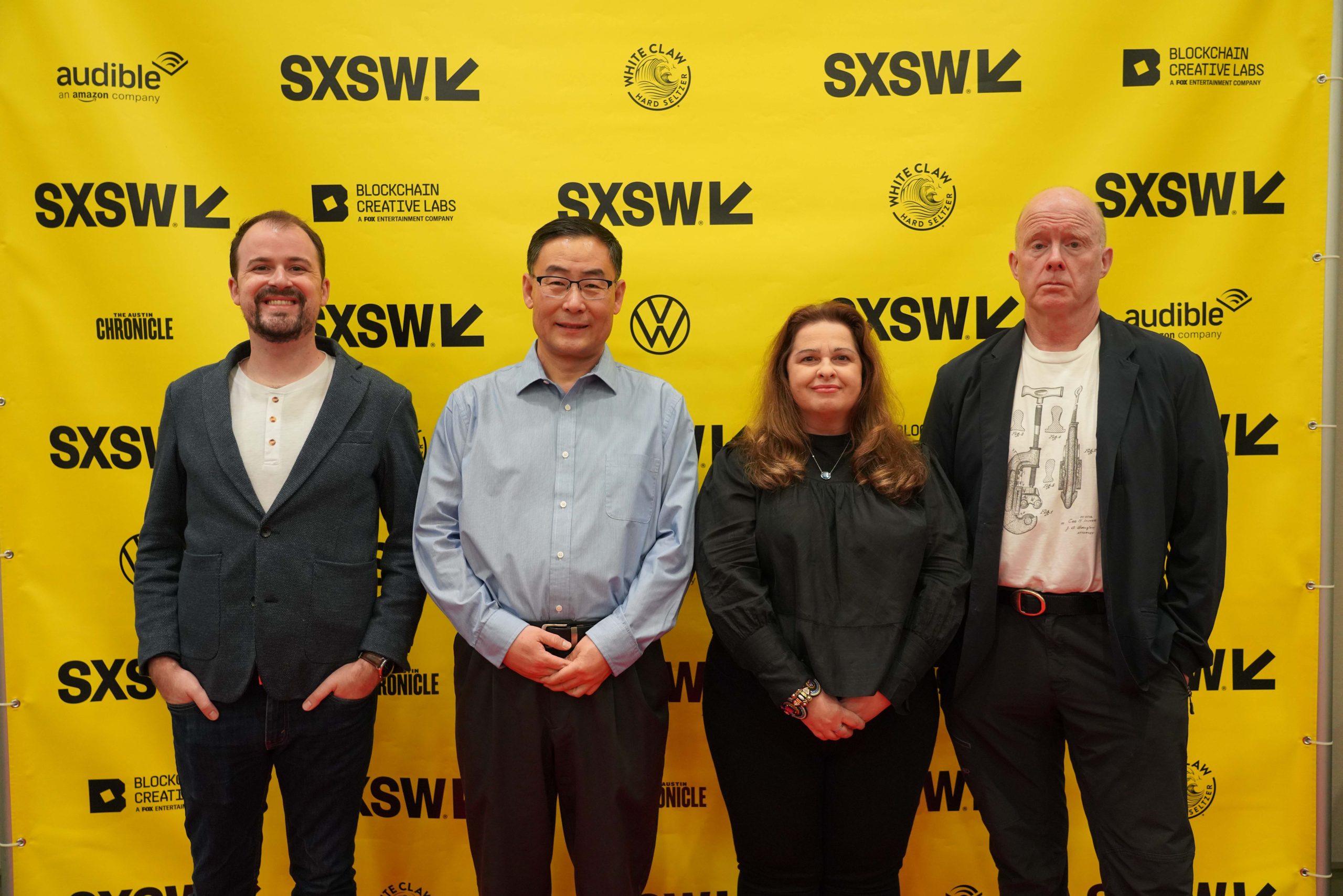
The New School at SXSW: The Art, Design, and Social Good of Quantum Computing
Quantum Computing sounds like a program you would find at a university focused on technology, like MIT or Stanford, not a school known for its design, music, and social science programs. But understanding that this new technology is positioned to shape and change the world, The New School has embarked on an initiative to explore the applications of quantum computing in art, design, education, business, and social justice. Recently the individuals bringing quantum computing to The New School spoke at the 2022 South by Southwest Conference and Festivals (SXSW) to discuss how this emerging technology can be integrated into creative arts and applied to advance social good.
During the panel, Lin Zhou, senior vice president and chief information officer at The New School; Sven Travis, associate professor of media and design at Parsons School of Design; and Maya Georgieva, senior director of The New School’s Innovation Center, discussed the importance of having artists, designers, and social researchers participate in the early development of quantum computing.
“It’s extremely rare for creatives to get access to technology in the early days of development. One of the things we’re hoping for is that the evolution of quantum could happen in a different way than, for example, artificial intelligence and machine learning,” said Travis. “We can go back to any number of technologies over the last couple of decades where we’re getting access to it or engaging with it usually after the technology is fairly fully developed.”
The computing we’re accustomed to, which drives laptops, desktops, websites, and smartphones, takes in information coded as the value of either 1 or 0. In contrast, quantum computing can take in information that exists in more than one state, such as a 1 and a 0 at the same time. The combination of The New School’s strength in liberal arts with this cutting-edge technology makes the new course different from those in traditional STEM university programs.
Although quantum computing is still an emerging field, the importance it will have prompted the university to be proactive in bringing this subject to students. “Whenever there is a technology breakthrough, usually the leading uses are not in the liberal arts. If you think about artificial intelligence [AI], the leading uses for AI are in financial technology, cyber security, and facial and voice recognition. Liberal arts is usually an afterthought. When those problems are figured out, then they say, ‘How about music? How about design? How about fashion?’” said Zhou. “This has to stop, because the arts, music, and design impact people’s daily lives. Whenever we have a new technology, liberal arts ought to be one of the front-runners as new technology is adopted.”
Many liberal arts and design colleges look at computer coding as the new literacy, but Zhou shared how creatives, social researchers and technologists should take a more holistic view toward technology. “In the past, when we talked about literacy, we usually talked about reading and writing. But for this century, it’s not enough. When we talk about literacy, we actually mean that everybody should be able to create harmony with technology. Quantum, as the next emerging and breakthrough technology, has profound capability to solve problems that the classical computer cannot solve today. So, from the point of view of all the higher education institutions, we have the obligation to help society adopt the technology,” said Zhou. “We know if we don’t do it right with privacy, with social justice, those issues, which seem to be very simple, will backfire on us.”
Part of Georgieva’s mission is to engage the community with emerging technologies. “The opportunity for us is to create events where people can come together, so that students can have a real conversation about their own ideas. It’s important to us to give them that space, access to tools, and opportunities to play,” said Georgieva.
“Bringing an emerging technology, frontier technology, and code as a language, into a creative setting is really fascinating and opens up imaginative projects that may not necessarily take place in a lab. We want to see that impact. We want to be part of explaining what it would mean to live in a world where quantum computing and art is one expression,” she adds.
Citing the university’s history of innovation and commitment to social change since its founding, Zhou believes The New School has an important role to play in the development of quantum computing. “With The New School, for the past 100 years, we have produced world-class thinkers, designers, and social justice movers. We will continue to focus on leveraging quantum computing, this wonderful technology, on the social front, and leveraging the technology to improve the human condition,” said Zhou.